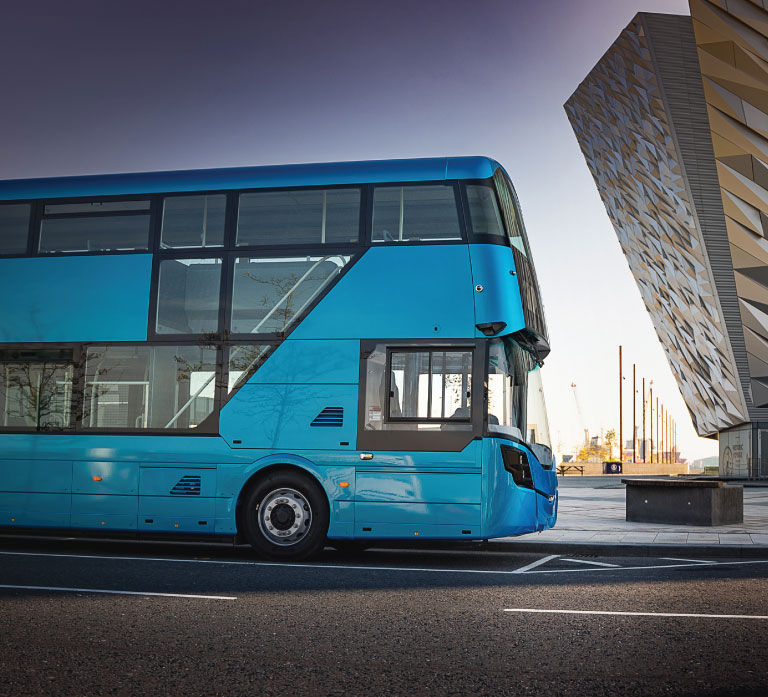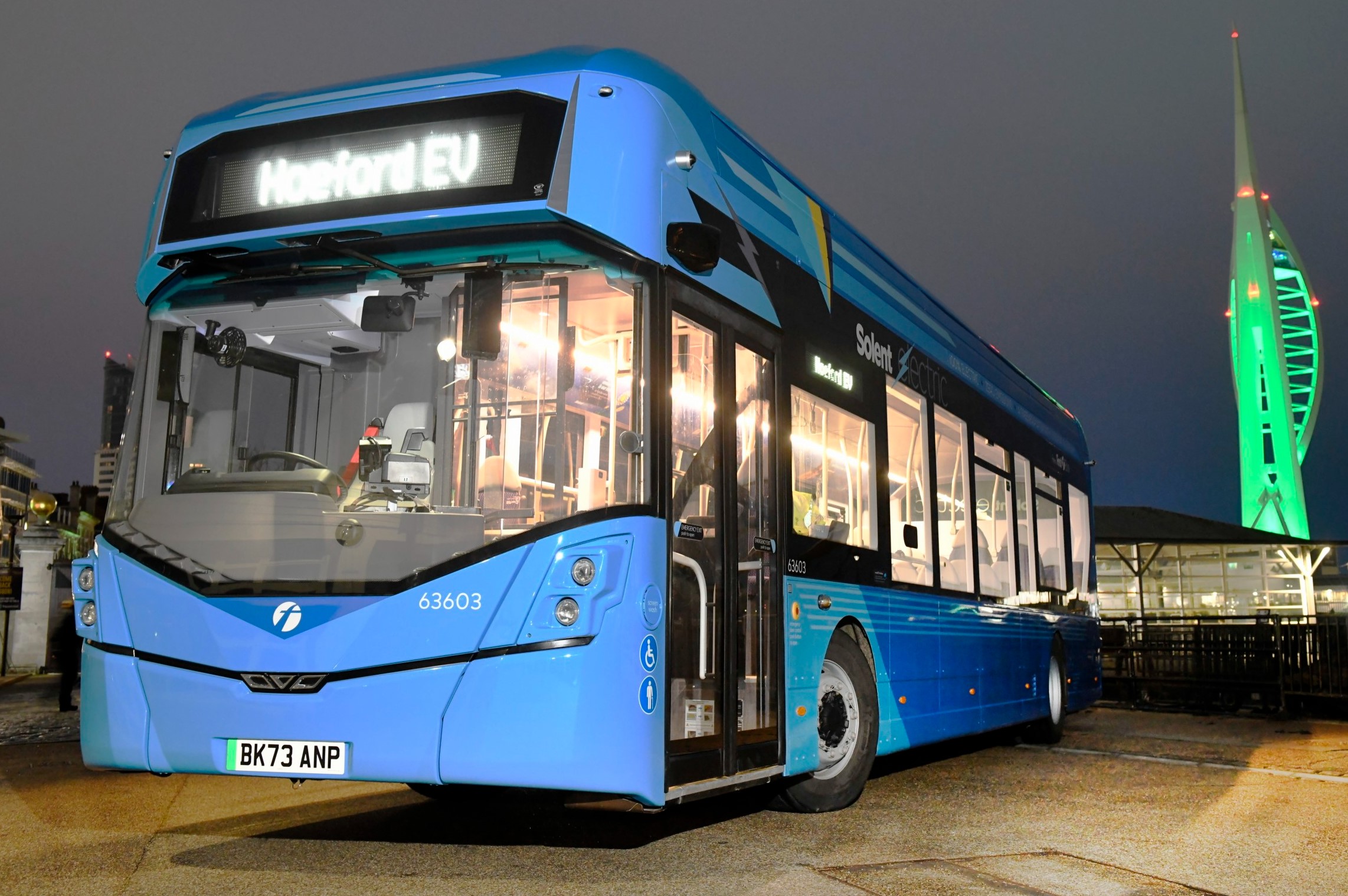With the UK bus industry entering a period of rapid change, Passenger Transport has partnered with Transport Times to launch the seventh UK Bus Summit.
Following a break of several years, the event at Etc Venues in Portland Street, Manchester on September 11, supported by Transport for Greater Manchester, the Urban Transport Group and Confederation of Passenger Transport, will bring together political leaders, transport professionals and industry representatives to discuss the future of bus services in the UK.
It will also give attendees the opportunity to hear from decision-makers on the latest legislative, policy and practical developments across England, Wales, Scotland and Northern Ireland, as well as see operators and supply chain representatives analyse key developments in the sector.
“For six years the UK Bus Summit was the go-to event for those who wanted to understand where bus policy is at across the UK and influence its direction of travel – but there hasn’t been one since 2020,” said Robert Jack, Editor at Passenger Transport.
“We are excited to be working with Transport Times to bring this important event back.”
This year is a pivotal one for the most widely used form of public transport across the UK, with new Buses Bills currently going through both UK and Welsh parliaments allowing the introduction of franchising and municipal operations.
It also heralds the first Comprehensive Spending Review of the new UK government which has placed growth at the top of its agenda and views the bus industry as a vital tool to help boost it.
Following the example of Greater Manchester, regional mayors across England are moving to transform their bus networks, with most currently in the process of progressing re-regulation.
Key issues to be discussed at the event will include:
- A look at Greater Manchester’s recent adoption of bus franchising as part of its Bee Network
- Updates from regional mayors on plans for transforming their bus networks
- What kinds of franchising model work best in which areas and where should successful enhanced partnerships be retained
- What can be done to make bus and coach accessible, affordable and safe, particularly for women and girls
- How technology can fast-track both improved customer experience and de-carbonisation
Making the case for long-term, multi-year funding settlements for buses

Agenda
The event will start with a registration and welcome breakfast from 8am, before opening with a keynote address by Local Transport minister, Simon Lightwood, entitled Better Buses Ahead: The Plan for Change
This will be followed by a full day of discussions organised into four themed sessions.
The first session will explore how devolved powers can be used to create affordable, accessible and integrated transport networks.
It will be chaired by Leon Daniels and include contributions from Tracy Brabin, mayor of West Yorkshire, and Claire Ward, mayor of the East Midlands.
Later in the morning, the summit will explore the role of technology in improving the environmental performance and customer experience of bus services.
Speakers confirmed for this session include Bradley Fox, director of EV fleet for the UK and Nordics at Zenobe, and Miki Szikszai, chief executive of Snapper Services. Representatives from other technology providers are also due to take part.
During the morning sessions, Andy Burnham, mayor of Greater Manchester, and Oliver Coppard, mayor of South Yorkshire, have been invited to speak, along with transport ministers from the devolved governments in Scotland and Wales.
After a break for lunch, the afternoon programme will begin with a session on how bus services contribute to wider goals such as economic growth, job creation, and regional connectivity.
Jason Prince of the Urban Transport Group will chair this panel, which will include Paul Walker, head of passenger transport at Portsmouth City Council, as well as the thoughts of major bus operators, including First Bus.
In the final session of the day there will be a discussion about the place of buses in publicly owned and integrated transport systems.
The session will be chaired by Graham Vidler, chief executive of the Confederation of Passenger Transport, and feature Kayleigh Ingham, chair of Women in Bus and Coach, as well as Sara Gilmore, partner in infrastructure projects and energy at Addleshaw Goddard.
Senior representatives from Transport for Greater Manchester are also due to take part in this session.

Bee Network
Greater Manchester’s Bee Network was created as a new, unified public transport system, starting with the franchising of bus services in September 2023.
The phased rollout of the network, including the franchising of local bus routes, was completed in January 2025, with Manchester the first region to bring local bus services under local control.
It aims to integrate buses, trams, trains, and active travel – walking, wheeling, and cycling – into a single, seamless system.
More than 300 electric buses are now in service in Greater Manchester, marking a tenfold increase since the Bee Network assumed control of bus services.
A longer-term goal to fully electrify the region’s bus fleet by 2030 is supported by £2.5 billion in wider government transport funding.
To enable this shift, Transport for Greater Manchester (TfGM) is upgrading infrastructure across the region.
Depots in Bolton, Manchester, Oldham and Ashton have been adapted to support electric vehicles, with Ashton becoming the first depot in the region to operate fully electric services.
This transition is being implemented as part of a non-charging approach to air quality, focused on cleaner transport alternatives rather than levying charges on drivers.
Cllr Eamonn O’Brien, Leader of Bury Council and Clean Air lead for Greater Manchester, said: “Investment in the Bee Network is enabling more people to choose cleaner, greener ways to get around – like public transport and walking or cycling – instead of driving.
“As we deliver our Clean Air Plan alongside the Bee Network, with support from the government, we’ll roll out the UK’s first fully integrated, zero-emission public transport system by the end of the decade and improve the air we all breathe for generations to come.”
Bus industry professionals can register their interest in attending the event by emailing [email protected]
BACK TO ALL NEWS
